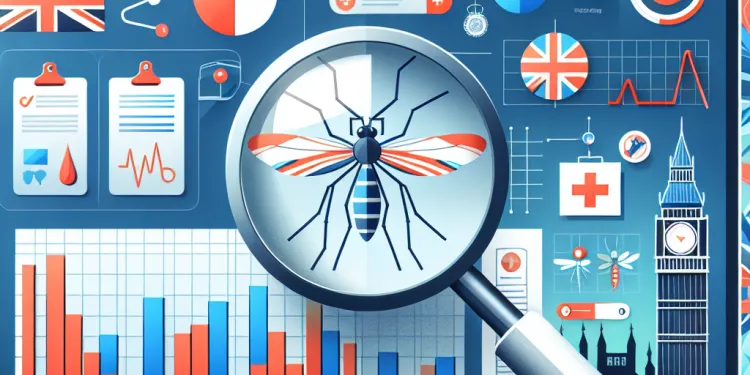
Find Help
More Items From Ergsy search
-

Why are Nipah Virus outbreaks considered a public health concern?
Relevance: 100%
-

Can Nipah Virus cause outbreaks?
Relevance: 75%
-

How is Nipah Virus controlled during outbreaks?
Relevance: 73%
-

What regions are most at risk for Nipah Virus outbreaks?
Relevance: 71%
-

What is Nipah Virus?
Relevance: 71%
-

Is there a cure for Nipah Virus?
Relevance: 66%
-

What is the mortality rate of Nipah Virus infection?
Relevance: 63%
-

How is Nipah Virus diagnosed?
Relevance: 60%
-

Where was Nipah Virus first identified?
Relevance: 60%
-

What global organizations are involved in Nipah Virus research?
Relevance: 60%
-

How is Nipah Virus transmitted?
Relevance: 59%
-

Can Nipah Virus cause neurological complications?
Relevance: 57%
-

Has a vaccine been developed against Nipah Virus?
Relevance: 57%
-

Can Nipah Virus be transmitted from person to person?
Relevance: 55%
-

Which animals are known to carry Nipah Virus?
Relevance: 54%
-

What preventive measures can reduce the risk of Nipah Virus infection?
Relevance: 54%
-

What are the symptoms of Nipah Virus infection?
Relevance: 53%
-

What should someone do if they suspect Nipah Virus infection?
Relevance: 53%
-

What role do fruit bats play in Nipah Virus transmission?
Relevance: 53%
-

How do health authorities confirm a Marburg virus outbreak?
Relevance: 51%
-

Should UK travelers be concerned about Zika virus?
Relevance: 43%
-

What measures are being taken to control Marburg virus outbreaks?
Relevance: 43%
-

Has Marburg virus caused any major outbreaks?
Relevance: 42%
-

Are there any countries at higher risk for Marburg virus outbreaks?
Relevance: 40%
-

How do health officials monitor West Nile Virus?
Relevance: 38%
-

Is the Marburg virus related to the Ebola virus?
Relevance: 35%
-

What public health measures are important for managing the plague?
Relevance: 35%
-

Are there any Zika virus outbreaks currently?
Relevance: 34%
-

Why are measles outbreaks still occurring?
Relevance: 34%
-

What is the Marburg Virus?
Relevance: 32%
-

Is there a vaccine for Marburg virus?
Relevance: 32%
-

What should you do during a measles outbreak?
Relevance: 32%
-

Is Zika virus present in the UK?
Relevance: 32%
-

What is the mortality rate of Marburg virus disease?
Relevance: 32%
-

What research is being done on the Marburg virus?
Relevance: 31%
-

Are measles outbreaks common in the UK?
Relevance: 31%
-

Does the UK have Zika virus?
Relevance: 31%
-

How can measles outbreaks be prevented?
Relevance: 31%
-

What is a public health funeral?
Relevance: 31%
-

Are UK mosquitoes capable of transmitting Zika virus?
Relevance: 30%
Introduction to Nipah Virus
The Nipah virus is a zoonotic virus that can be transmitted to humans from animals, as well as through contaminated food or directly from human to human. It primarily affects Southeast Asia but poses a global health risk due to the potential for widespread outbreaks. First identified in Malaysia in 1998, its outbreaks have since been reported in various parts of Asia, notably in Bangladesh and India.
Symptoms and Transmission
Infected individuals may experience a range of symptoms from mild flu-like signs to severe respiratory distress, and in the worst cases, encephalitis, which can lead to seizures and coma. The symptoms typically appear within 4 to 14 days of exposure. The virus is highly contagious among animals and from animals to humans. Fruit bats, particularly those from the Pteropus genus, are the natural hosts. Human transmission occurs through direct contact with infected bats, pigs, or people, or by consuming contaminated food products.
Why It Is a Public Health Concern
Nipah virus outbreaks are of great concern due to the high mortality rate among those infected, estimated to range from 40% to as high as 75%. With no specific treatment or vaccine available, the virus poses a significant threat to public health systems. The risk of human-to-human transmission can lead to substantial outbreaks that are difficult to control, especially in densely populated areas.
The potential economic impact is also considerable. Outbreaks can lead to severe disruptions in agricultural activities, particularly affecting pig farming and fruit production, which are critical in many developing countries in Asia. These disruptions can have long-lasting effects on local economies and food security.
Global Implications
Although the UK itself has not experienced an outbreak, the interconnected nature of today’s world makes the spread of infectious diseases more likely. International travel and trade can contribute to the global transmission of the virus, posing a threat even to regions outside of its usual geographical scope, such as the UK. As such, monitoring and preparedness on a global scale are crucial.
The World Health Organization has identified Nipah as a priority disease for which research and development need to be accelerated. This highlights the importance of international collaboration in research, surveillance, and preparation against potential outbreaks. Efficient diagnostic tools, investment in vaccine research, and public awareness campaigns are essential to mitigate the impact of future outbreaks.
Conclusion
In summary, although the Nipah virus may seem remote to those in the UK, its potential for causing serious health, economic, and social disruptions makes it a public health concern that warrants attention from the global community. Preparing for possible outbreaks through international cooperation and preventive strategies is crucial for maintaining public health security.
What is Nipah Virus?
Nipah virus is a sickness that can spread from animals to people. It can also spread through dirty food or directly from one person to another. Nipah virus mostly happens in Southeast Asia, but it can be a problem everywhere. The first time it was found was in Malaysia in 1998. Other places in Asia, like Bangladesh and India, have also had Nipah outbreaks.
How Does Nipah Virus Make You Sick?
If you get Nipah virus, you might feel like you have the flu. But it can also make it hard to breathe, or even affect your brain and cause seizures or a coma. Signs of being sick usually show up 4 to 14 days after you get the virus. The virus spreads easily between animals and from animals to people. It often comes from bats called fruit bats. People can catch it by touching sick bats, pigs, other people, or eating food that has the virus.
Why is Nipah Virus a Big Problem?
Nipah virus is very dangerous because many people who get it can die – sometimes 4 out of 10 to 7 out of 10 people. There is no medicine or vaccine to stop it, so it is hard for doctors to help. It can spread quickly, especially where lots of people live close together.
It can also hurt farms and food production. This is a big problem for countries in Asia that grow pigs and fruit. When these farms are affected, people can't work, and there might not be enough food, which can harm local economies.
Why Should Everyone Care?
Even though places like the UK haven't had Nipah virus outbreaks, the world is connected through travel and trade. This means the virus can spread to other countries. That's why watching for the virus and being prepared everywhere is important.
The World Health Organization says Nipah is a big worry and needs more attention. Working together worldwide on research and planning is important to stop this virus. Good testing, making vaccines, and teaching people about the virus can help reduce problems in the future.
Wrapping Up
To sum up, even though Nipah virus seems far away, it can cause big health and money problems. It is important for everyone around the world to work together to stop it before it starts.
Frequently Asked Questions
What is Nipah virus?
Nipah virus is a zoonotic virus, meaning it can be transmitted from animals to humans, and it also spreads through contaminated food or directly between people.
Why is Nipah virus considered a serious public health concern?
Nipah virus is a public health concern because it has a high mortality rate, can cause severe respiratory and neurological symptoms, and there are no specific treatments or vaccines available.
How does Nipah virus transmission occur?
Nipah virus can be transmitted through direct contact with infected animals, consuming contaminated food, or human-to-human transmission through respiratory droplets or bodily fluids.
What are the symptoms of Nipah virus infection?
Symptoms of Nipah virus infection range from asymptomatic to severe, including fever, headache, drowsiness, respiratory issues, and in severe cases, encephalitis and coma.
How high is the mortality rate of Nipah virus?
The mortality rate of Nipah virus infection can vary from 40% to 75%, depending on the outbreak and region.
Are there vaccines available for Nipah virus?
As of now, there are no specific vaccines available for Nipah virus, although research is ongoing to develop one.
What measures are taken to prevent Nipah virus outbreaks?
Preventive measures include surveillance of animal carriers, public education on avoiding contact with sick animals, and strengthening healthcare capacities to manage outbreaks rapidly.
Where have past Nipah virus outbreaks occurred?
Past outbreaks have occurred primarily in South and Southeast Asia, with Bangladesh and India experiencing multiple outbreaks.
How does human-to-human transmission of Nipah virus occur?
Human-to-human transmission occurs through close contact with an infected person’s respiratory droplets, body fluids, or contaminated objects.
Why is there no specific treatment for Nipah virus?
Nipah virus lacks specific antiviral treatments due to limitations in research funding, its status as an emerging virus, and the complex nature of virus development.
What animals are known to be carriers of Nipah virus?
Fruit bats of the Pteropodidae family, particularly species belonging to the Pteropus genus, are natural hosts for the Nipah virus.
How can the Nipah virus be detected in humans?
Nipah virus can be detected using laboratory tests such as Polymerase Chain Reaction (PCR) and Enzyme-Linked Immunosorbent Assay (ELISA).
What role do fruit bats play in the spread of Nipah virus?
Fruit bats are the natural reservoir for Nipah virus and can spread it to other animals and humans through saliva, urine, and feces.
Can Nipah virus outbreaks lead to global pandemics?
While Nipah virus has pandemic potential due to person-to-person transmission, outbreaks have been geographically confined so far, primarily due to swift containment efforts.
What are the economic impacts of a Nipah virus outbreak?
Nipah virus outbreaks can lead to economic losses in livestock, reduced agricultural trade, and increased healthcare costs, affecting community livelihoods.
What is being done to develop a Nipah virus vaccine?
Research institutions and organizations are working on developing and testing vaccine candidates, with some promising results in early-stage trials.
How can healthcare systems prepare for Nipah virus outbreaks?
Healthcare systems can prepare by training personnel, ensuring rapid diagnostic capabilities, stocking protective gear, and establishing isolation protocols.
What are the challenges in controlling Nipah virus outbreaks?
Challenges include identifying and isolating cases swiftly, public awareness, tracking virus reservoirs, and improving healthcare infrastructure in affected regions.
How can public education help in controlling Nipah virus outbreaks?
Public education can help by raising awareness about transmission routes, encouraging preventive behaviors, and reducing misconceptions about the virus.
What international efforts are in place to manage Nipah virus threats?
Organizations like WHO and Global Virus Network coordinate efforts for surveillance, research, and response strategies to manage Nipah virus threats globally.
What is Nipah virus?
Nipah virus is a sickness. It is caused by a virus. A virus is a tiny germ that can make people sick.
Nipah virus can spread from animals to people. It can also spread from person to person.
If you want to know more, it is good to ask a doctor or a nurse. They can help answer your questions.
Using pictures or videos can help you understand better. Talking with someone who can explain things to you is also helpful.
Nipah virus is a germ that can make people sick. It can pass from animals to people. It can also spread if food is dirty or from one person to another.
Why is Nipah virus a big health worry?
The Nipah virus is a type of germ that makes people very sick.
It spreads from animals to people, and then from person to person.
When someone has Nipah, they might feel very unwell. They can have a fever, headache, or even problems with their brain.
This sickness is very serious, and it can kill people.
It is important to stop it from spreading. Doctors and nurses work hard to see this does not happen.
To help keep safe, people can wash their hands often and stay away from those who are sick.
Nipah virus is dangerous. It makes people very sick and many can die from it. It can make breathing and the brain not work well. There are no special medicines or shots to stop it.
How does Nipah virus spread?
The Nipah virus can make people sick. It spreads in a few ways. Here is how:
- Animals: Sometimes, animals like bats and pigs have the virus. If people touch these animals or their pee or poop, they might get sick.
- Food: If someone eats fruit or drinks juice that a sick bat has touched, they can get the virus.
- People: If a sick person coughs or sneezes, the virus can spread to other people through tiny droplets in the air.
Tips to stay safe:
- Wash your hands often with soap and water.
- Avoid touching animals you do not know.
- Do not eat fruit that has been bitten.
- Stay away from people who are sick.
Using these tips can help keep you safe from the virus.
You can catch Nipah virus by touching animals that are sick, eating food that has germs, or from people who already have the virus. The virus can spread through tiny drops when someone coughs or sneezes, or through things like blood.
What happens when you get Nipah virus?
If you get the Nipah virus, you might feel sick. Here are some signs:
- Fever (feeling very hot)
- Headache (your head hurts)
- Tiredness (feeling very sleepy)
- Cough (making a rough sound from your throat)
- Tummy ache (your stomach hurts)
If you have these signs, it is important to tell a doctor. You can use tools like picture charts or apps to help explain how you feel. Having someone with you, like a friend or family member, can also help.
When someone has the Nipah virus, they might feel sick in different ways. Some people don't feel sick at all. Others might have: a fever, a headache, feel very sleepy, have trouble breathing. In really bad cases, it can make their brain swell, and they might go into a coma.
How many people die from Nipah virus?
The chance of dying from Nipah virus infection can be between 4 out of 10 people to 7 out of 10 people. This can change depending on where you are and when the outbreak happens.
Helpful Tip: Using picture cards or listening to information can make learning easier!
Is there a vaccine for the Nipah virus?
A vaccine is a medicine that helps protect you from getting sick.
Right now, there is no vaccine for the Nipah virus. This means there is no medicine to stop people from catching it.
To stay safe, you can:
- Wash your hands often with soap and water.
- Avoid contact with sick people.
- Stay away from bats and pigs, as they can carry the virus.
If you want to learn more or need help, talk to a doctor or a nurse. They can give good advice.
Right now, there are no special shots to stop the Nipah virus. But some very smart people are working hard to make one.
How do people stop Nipah virus from spreading?
To stop the spread of diseases, we can do a few things:
- Watch animals closely to see if they are sick.
- Teach people not to touch sick animals.
- Make sure doctors and nurses can help people quickly if there is an outbreak.
Tools like picture cards or videos can help people understand better.
Where has the Nipah virus happened before?
The Nipah virus has happened in some countries before.
These countries are:
- Bangladesh
- India
- Malaysia
- Singapore
If reading is hard, you can ask someone to read this to you. You can also use an app that reads out loud.
Most outbreaks have happened in South and Southeast Asia. Bangladesh and India have had many outbreaks.
How do people spread the Nipah virus to each other?
People can get sick from other people. This happens when you are close to a sick person. You can catch it from their coughs or sneezes, body fluids like spit, or things they have touched that are dirty.
Why is there no special medicine for the Nipah virus?
The Nipah virus is like a very strong cold virus. Right now, doctors do not have a special medicine that can make it go away. This is because the virus is new and not many people know about it yet.
Here is how we can help people who have the Nipah virus:
- Let them rest as much as they need.
- Give them lots of water to drink.
- Take them to the hospital if they feel really sick.
Some tools can help people understand better:
- Pictures can show what the virus looks like and how it spreads.
- You can watch videos that explain the virus in simple words.
There are no special medicines to treat Nipah virus. This is because:
- There isn't enough money for research.
- Nipah is a new virus we're still learning about.
- Viruses are tricky and hard to understand.
People can use these tools to make reading easier:
- Read Aloud: Use apps or devices that read text out loud.
- Break It Down: Take it one sentence at a time.
- Ask For Help: Talk to someone if you have questions.
What animals can spread the Nipah virus?
Some animals can carry and spread the Nipah virus. These animals include:
- Fruit bats: These bats eat fruits and can give the virus to other animals.
- Pigs: Pigs can get the virus from bats and spread it to other pigs and people.
People should be careful around these animals to stay safe. Using books with pictures or watching videos about animals can help understand more.
Fruit bats, which are big bats that eat fruit, are important to know about. Some of these fruit bats have a special name: Pteropus. These bats live in the wild and can carry something called the Nipah virus.
How do doctors find out if a person has the Nipah virus?
Doctors can do special tests to see if someone has the Nipah virus. Here are some ways they do it:
- Blood test: A small amount of blood is taken to look for signs of the virus.
- Throat swab: A soft stick with cotton on the end is rubbed inside the mouth and throat to collect germs.
- Urine test: A small cup is used to collect pee, which is then tested for the virus.
- Spinal fluid test: This test looks at the clear fluid around the spine to check for the virus. It's done only if really needed.
Doctors use these tests to help people get the right treatment if they have the virus.
If reading is hard, try using tools like:
- Audio books: Listen to books instead of reading.
- Text-to-speech apps: These apps read text out loud to you.
- Reading pens: A pen that scans and reads text to you.
Doctors can find the Nipah virus with special tests. These tests are called PCR and ELISA. They help see if someone has the virus.
How do fruit bats help spread Nipah virus?
Fruit bats carry a sickness called Nipah virus. They can give it to other animals and people. This happens if someone touches their spit, pee, or poop.
Can Nipah virus spread all over the world?
The Nipah virus can spread from one person to another, which means it could cause a big sickness spread, called a pandemic. But so far, the sickness has mostly stayed in one area. This is because people worked quickly to stop it from spreading.
How does the Nipah virus affect money and jobs?
Nipah virus outbreaks can cause problems. They can make farm animals sick, hurt farming and trading, and make healthcare more expensive. This affects how people in the community live and work.
It can help to use tools like pictures or videos to learn about Nipah virus. Talking to someone who knows a lot about it can also be useful.
How are people making a Nipah virus vaccine?
Scientists are working on a vaccine to stop the Nipah virus. A vaccine helps keep people safe from getting sick. Here are some ways they are doing this:
- Testing different types of vaccines to see which one works best.
- Making sure the vaccine is safe for people to use.
- Working with doctors and hospitals to find the best way to give the vaccine to people.
If reading is hard, trying using tools like text-to-speech apps or audiobooks. They can help you understand the information by listening instead of reading.
Research groups are making and testing vaccines. Some of these vaccines look like they could work, even in the first tests.
How can healthcare systems get ready for Nipah virus outbreaks?
Healthcare systems can do a few things to get ready for Nipah virus outbreaks:
- Train doctors and nurses to know what Nipah virus is and how to treat it.
- Make sure hospitals have enough space and supplies for patients.
- Create plans to find and test people who might be sick with the virus.
- Educate the public about ways to stay safe and avoid getting sick.
- Work with other health experts around the world to share information.
Helpful tools might include:
- Easy-to-read guides about Nipah virus.
- Visual aids, like posters and pictures, to show how to protect yourself.
- Videos and audio messages for more understanding.
Healthcare systems can get ready by doing some important things. They need to train their workers, have quick ways to find out what's wrong, keep lots of protective clothes, and have plans for keeping sick people away from others.
What makes it hard to stop Nipah virus outbreaks?
Some problems are:
- Finding and helping sick people quickly.
- Teaching everyone about the sickness.
- Knowing where the sickness hides so we can stop it.
- Making hospitals and clinics better in places that need help.
To understand better, you can:
- Use simple apps that explain things in easy words.
- Watch videos and pictures that show what to do.
- Ask someone to explain things if they can help.
How can teaching people stop the Nipah virus from spreading?
When we teach people about the Nipah virus, we can help stop it from spreading. Here are some ways:
- Explain what the Nipah virus is: Tell people that it is a virus that can make people very sick.
- Share ways to stay safe: Teach people to wash their hands often and avoid sick animals.
- Use simple words and pictures: Use easy words and pictures to help people understand better.
- Talk to everyone: Make sure to tell both kids and adults so everyone knows how to stay safe.
- Help can come from friends: Encourage friends and family to remind each other about these tips.
By helping people learn about the Nipah virus, we can keep everyone safe and healthy.
Schools and teachers can help by telling people how the virus spreads, showing them how to stay safe, and stopping wrong ideas about the virus.
How do countries work together to stop the Nipah virus?
Big groups like WHO and the Global Virus Network work together to watch, study, and plan how to handle the Nipah virus around the world.
Useful Links
This website offers general information and is not a substitute for professional advice.
Always seek guidance from qualified professionals.
If you have any medical concerns or need urgent help, contact a healthcare professional or emergency services immediately.
Some of this content was generated with AI assistance. We’ve done our best to keep it accurate, helpful, and human-friendly.
- Ergsy carfully checks the information in the videos we provide here.
- Videos shown by Youtube after a video has completed, have NOT been reviewed by ERGSY.
- To view, click the arrow in centre of video.
- Most of the videos you find here will have subtitles and/or closed captions available.
- You may need to turn these on, and choose your preferred language.
- Go to the video you'd like to watch.
- If closed captions (CC) are available, settings will be visible on the bottom right of the video player.
- To turn on Captions, click settings .
- To turn off Captions, click settings again.
More Items From Ergsy search
-

Why are Nipah Virus outbreaks considered a public health concern?
Relevance: 100%
-

Can Nipah Virus cause outbreaks?
Relevance: 75%
-

How is Nipah Virus controlled during outbreaks?
Relevance: 73%
-

What regions are most at risk for Nipah Virus outbreaks?
Relevance: 71%
-

What is Nipah Virus?
Relevance: 71%
-

Is there a cure for Nipah Virus?
Relevance: 66%
-

What is the mortality rate of Nipah Virus infection?
Relevance: 63%
-

How is Nipah Virus diagnosed?
Relevance: 60%
-

Where was Nipah Virus first identified?
Relevance: 60%
-

What global organizations are involved in Nipah Virus research?
Relevance: 60%
-

How is Nipah Virus transmitted?
Relevance: 59%
-

Can Nipah Virus cause neurological complications?
Relevance: 57%
-

Has a vaccine been developed against Nipah Virus?
Relevance: 57%
-

Can Nipah Virus be transmitted from person to person?
Relevance: 55%
-

Which animals are known to carry Nipah Virus?
Relevance: 54%
-

What preventive measures can reduce the risk of Nipah Virus infection?
Relevance: 54%
-

What are the symptoms of Nipah Virus infection?
Relevance: 53%
-

What should someone do if they suspect Nipah Virus infection?
Relevance: 53%
-

What role do fruit bats play in Nipah Virus transmission?
Relevance: 53%
-

How do health authorities confirm a Marburg virus outbreak?
Relevance: 51%
-

Should UK travelers be concerned about Zika virus?
Relevance: 43%
-

What measures are being taken to control Marburg virus outbreaks?
Relevance: 43%
-

Has Marburg virus caused any major outbreaks?
Relevance: 42%
-

Are there any countries at higher risk for Marburg virus outbreaks?
Relevance: 40%
-

How do health officials monitor West Nile Virus?
Relevance: 38%
-

Is the Marburg virus related to the Ebola virus?
Relevance: 35%
-

What public health measures are important for managing the plague?
Relevance: 35%
-

Are there any Zika virus outbreaks currently?
Relevance: 34%
-

Why are measles outbreaks still occurring?
Relevance: 34%
-

What is the Marburg Virus?
Relevance: 32%
-

Is there a vaccine for Marburg virus?
Relevance: 32%
-

What should you do during a measles outbreak?
Relevance: 32%
-

Is Zika virus present in the UK?
Relevance: 32%
-

What is the mortality rate of Marburg virus disease?
Relevance: 32%
-

What research is being done on the Marburg virus?
Relevance: 31%
-

Are measles outbreaks common in the UK?
Relevance: 31%
-

Does the UK have Zika virus?
Relevance: 31%
-

How can measles outbreaks be prevented?
Relevance: 31%
-

What is a public health funeral?
Relevance: 31%
-

Are UK mosquitoes capable of transmitting Zika virus?
Relevance: 30%


